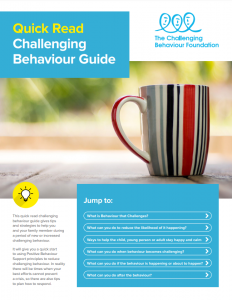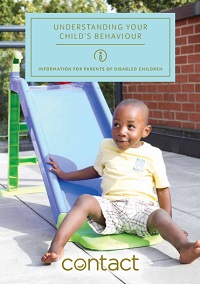Managing behaviour
Help with managing behaviour is one of the top topics parents tell us they want to have better information on, and support with.
There are lots of things to try that can make a really big difference – some are quick wins, and some take longer to work. There is no magic wand that fixes things but by trying different approaches you may make things easier for your child and for you / your family.
It starts with trying to work out what happens and when, before then working out what things make the behaviour disappear, more manageable or worse. Some things work all the time and sometimes you’ll need to adapt as your child changes.
Pinpoint run free workshops for parent carers each month in term time, many of which feature managing behaviour.
Cambridgeshire’s Child and Family Centres run free courses too.
Cambridgeshire County council also offer a range of courses for parent carers.
Cambridgeshire County Council offer information through the Local Offer.
If your child is in school then do please talk to your child’s teacher or SENCO and explain what is happening and ask for help – teachers manage behaviour every day and are a rich resource of strategies to try.
Our Handy Guides cover Challenging Behaviour and courses that are offered when an assessment is being made or a diagnosis has been given: Autism, ADHD.
You may find this information on Non-Violent Resistance (NVR) helpful too as a technique to try.
What extra help is available?
School
You can access help for your child through their school. Schools are well-placed to provide advice on strategies to try and can also explain what they do at school to help your child. If you and the school feel that more specialist advice is needed, then school can make this request -this is usually provided through the specialist teacher and educational psychologists team. The help is usually around additional strategies to try to help manage the behaviour. It can also help identify or rule our underlying additional learning needs. Schools and families will need to work together on shared programmes to support the child.
Many schools work closely with Family Workers who can offer one to one support and advice. They can help you to explore what is working and what else you might try.
Cambridgeshire STEPS
Cambridgeshire County Council are encouraging all schools to use the STEPs programme to support behaviour. ‘Step On’ is a therapeutic approach to behaviour management, with an emphasis on consistency, on teaching internal discipline and on consequences rather than punishment. It uses techniques to analyse behaviour and plan responses to de-escalate a situation before a crisis occurs. Where a crisis does occur, it adopts techniques to reduce the risk of harm.
You can read the Cambridgeshire Steps guide for parents here.
Early Help
Early Help is a free Cambridgeshire County Council service that helps families who need a bit of extra support. You might be worried about your child’s behaviour or development. Or you and your family might experience some changes or difficulties that you can’t manage by yourself. Whatever you are worried about, Early Help can support you and your family so that small problems do not become big problems.
- The professionals who know you will assess the needs of your family using an Early Help Assessment. This will help you to get you support as quickly as possible.
- It is a voluntary process. You choose whether to be involved and can withdraw from the process at any time. Sometimes, children and young people can make their own decisions about whether they need an Early Help Assessment, and who they want to support them.
If you think you and your family might benefit from some support, you should ask a professional who you know. This could be your doctor, or a teacher at your child’s school. They can tell you more about Early Help.
You can also contact the Early Help Hub: early.helphub@cambridgeshire.gov.uk or call: 01480 376 666 (office hours). If you don’t know who to ask for help.
Sometimes a professional may approach you and ask whether you would like to talk about Early Help and how it could help your family.
Does challenging behaviour mean my child has a need which should be diagnosed?
Not necessarily. All children go through phases and some behaviours are easily managed and not problematic. However, if you child’s behaviour is preventing them for learning and socialising or puts them at risk of harm then you may well need specialist advice. This may or may not lead to a diagnosis of a specific need. Even with a diagnosis, the behaviour will still need managed and so you will need to get to grips with strategies which help your child early on.
There are some specialist organisations that provide advice based on diagnosis but the strategies can work just as well without a diagnosis.
Scope support for families of those with severe learning disabilities Family support line: 0300 666 0126
National Autistic Society also offer advice
Help for Mental Health
Mental health can contribute to behaviour as well as being affected by behaviour. You can access help and support for your child through a number of routes.
You can access free self-service help through Kooth – it’s a free online counselling and emotional well-being support service for children and young people accessed via a mobile, laptop or tablet.
Your young person can access counselling help from Centre 33.
Mind also have a range of support offers.
You can talk to your child’s GP and ask them to refer to you specialist services.
As a parent carer you may struggle with your mental health. You can access help for yourself through your GP.
We have a section of our website that covers mental health and well-being.
Need a safe space to talk?
Pinpoint offers regular Tii Hubs where you can drop in for a chat with other parent carers and have help towards services which may help you and your child.
Contact provide direct advice and support services to parent carers. Free Helpline is open Monday to Friday between 9.30am and 5.00pm: 0808 808 3555
Parent to Parent line on 0808 800 4106 Challenging Behaviour Foundation.
Caring Together have a chat line available to carers.
Action for Children offer a support line too.
Need a break?
Our section on short breaks has lots of information on how these work and how to access them.
Yvonne Newbold Violent and Challenging Behaviour

We’ve been working with Yvonne for the last few years and parent carers tell us they find her sessions helpful. You can find our free sessions in the events section of our website. Yvonne’s website has lots of useful tips for families whose children are exhibiting violent and challenging behaviour. You can also see Yvonne’s excellent TedEx talk here.
Support and guidance from The Challenging Behaviour Foundation
The Challenging Behaviour Foundation offer information about challenging behaviour to anyone that provides unpaid support to a child, young person or adult with a severe learning disability. They can also signpost you to other specialist organisations and sources of information.
Family Support Service at The Challenging Behaviour Foundation
- Email: support@thecbf.org.uk
- Phone: 0300 666 0126
- Monday – Thursday: 9am – 5pm and Friday: 9am – 3pm
- support is confidential and they won’t judge you or tell you what to do
Useful information and guidance resources from the The Challenging Behaviour Foundation
You will find a range of resources offering support and information about challenging behaviour and connected issues from The Challenging Behaviour Foundation here.
Their Quick Read Challenging Behaviour Guide gives tips and strategies to help you and your family member during a period of new or increased challenging behaviour.
Other useful resources also include those on:
Practical advice from Contact
 UK Charity Contact has a booklet called Understanding Your Child’s Behaviour.
UK Charity Contact has a booklet called Understanding Your Child’s Behaviour.
Information includes:
- Why children behave in different ways
- How to set the scene for good behaviour, recognising triggers and finding strategies
- Managing specific issues, like tantrums or biting
- Looking after yourself – people and organisations who can support you and your family
- Puberty and the teenage years, plus much more

